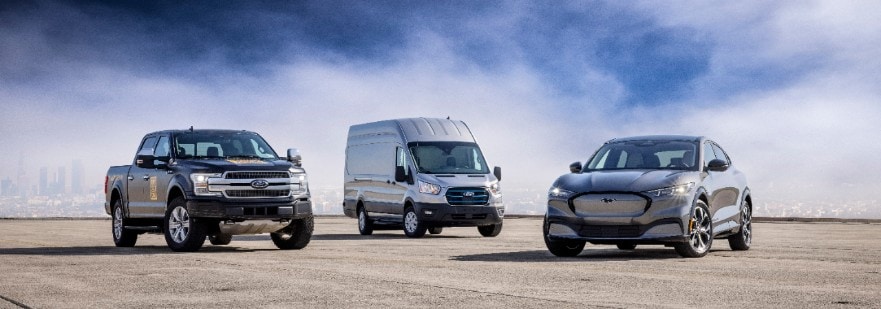Ford is pushing its electrification agenda hard, and the latest plan for the US-based automaker is to build four huge factories at the cost of $11.4 billion, creating 11,000 jobs in the process.
Out of the four factories, three will produce electric vehicle batteries, and the fourth will make electric pickup trucks. Each of the battery plants will produce 43 gigawatt-hours of batteries. Ford has a four-year timeline to make this happen. With these plants up and running, Ford will make more than one million electric vehicles yearly after 2025.
The battery plants will be built in collaboration with the battery firm SK Innovation from South Korea. Two of the battery production facilities will be constructed in Glendale, Kentucky, a town that currently has 1,700 occupants. The second site is Stanton, Tennessee, and it covers about 6 square miles. It will host the third battery plant and an electric pickup manufacturing plant.

The new factories will use low-impact manufacturing processes to protect the environment. For example, the plants will not use freshwater but recycled water. There will be no waste either.
Ford’s share of the building costs is $7 billion, and SK Innovation will make up the rest. The output from the three battery plants will be enough to equip a million trucks.
“This is a really pivotal moment for us,” said Lisa Drake, Ford’s chief operating officer for North America. She added that the company’s $7 billion expenditure is the most significant single investment in the company’s history.
“This is truly a staggering project,” said Yoosuk Kim, SK Innovation’s executive vice president.
The site for the pickup trucks has been named Blue Oval City. It is three times the size of Ford’s largest factory. Ford will be returning to vertical manufacturing, an industrial idea promoted by its founder in which every aspect of production is done in-house.
The main reason Ford is citing a battery plant nearby is to reduce the cost per kWh. The automaker is targeting $80 per kWh to enable it to achieve price parity with ICE vehicles. Transporting the battery is a significant part of the cost as they are heavy.